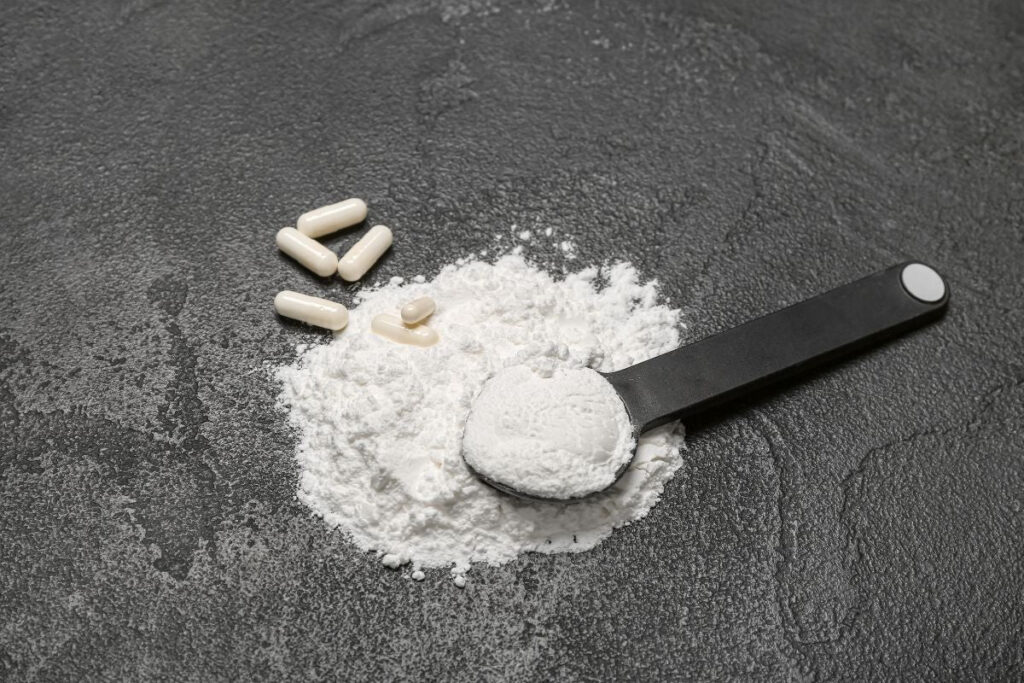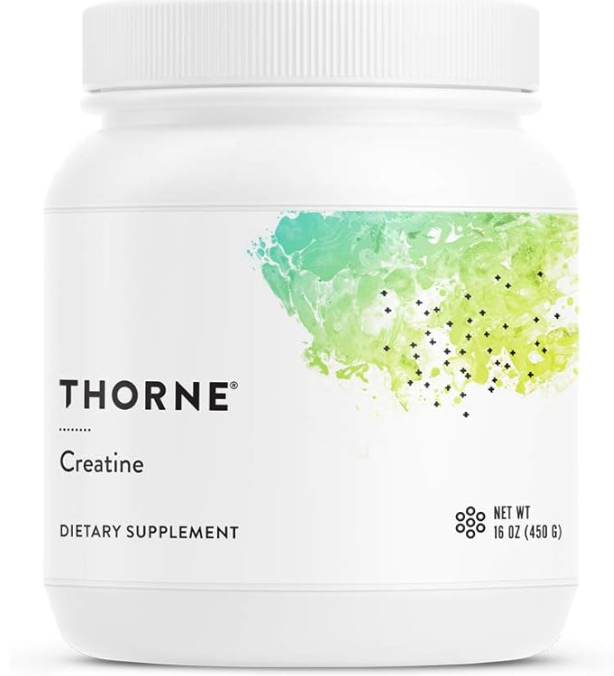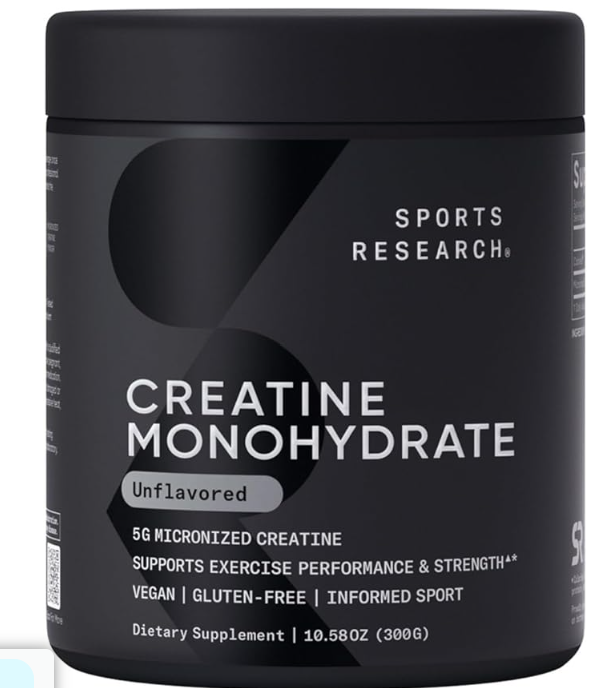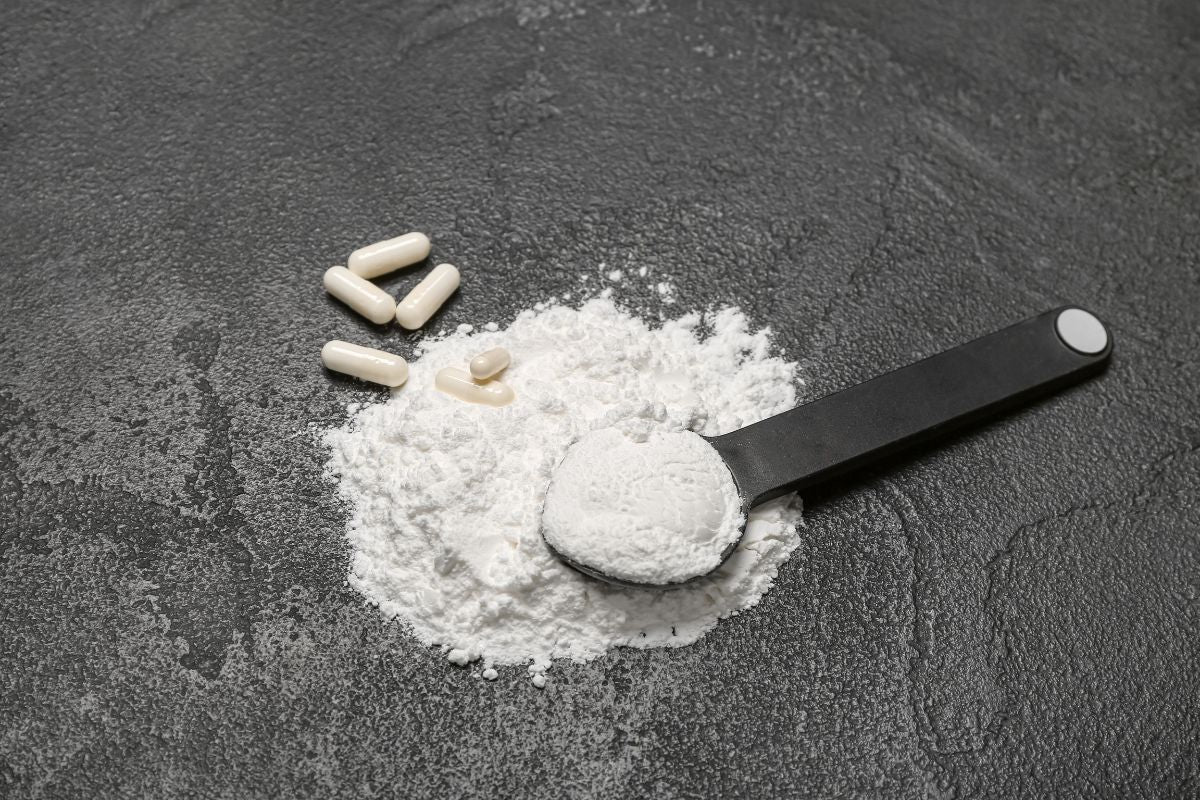Why Creatine Deserves a Spot in Every Marathon Runner’s Nutrition Plan
When you think of supplements for marathon runners, creatine might not be the first to come to mind. Traditionally associated with strength training and power sports, creatine is now gaining recognition for its potential benefits in endurance sports like marathon running. In this article, we’ll explore how creatine can enhance your running performance, optimize recovery, and help you train harder for race day.

What Is Creatine and How Does It Work?
Creatine is a naturally occurring compound stored in your muscles and used to produce energy during high-intensity, short-duration activities. It helps regenerate ATP (adenosine triphosphate), the energy currency of your cells. While this is most relevant in sprinting and weightlifting, recent research suggests creatine can also aid endurance athletes through indirect benefits like improved recovery, reduced fatigue, and better hydration.
Top 5 Benefits of Creatine for Marathon Runners
- Enhanced Recovery Between Runs
Long training runs cause muscle breakdown and depletion of energy stores. Creatine supplementation can speed up recovery by replenishing muscle energy reserves and reducing muscle soreness. - Improved High-Intensity Training Capacity
Even marathon runners need speed and interval training. Creatine can help sustain performance during short, intense bursts, leading to better overall conditioning. - Better Hydration and Electrolyte Balance
Creatine draws water into muscle cells, promoting hydration—a critical factor in long-distance running where dehydration can be performance-limiting. - Reduced Muscle Damage and Fatigue
Research suggests creatine has antioxidant properties, which can reduce inflammation and muscle damage after long runs. - Cognitive and Mental Boost
Marathon running is as much a mental challenge as a physical one. Creatine may improve cognitive function, keeping you focused during long, grueling races.
How to Use Creatine for Marathon Training
- Type: Use Creatine Monohydrate, the most researched and effective form. Look for micronized versions for better absorption.
- Dosage: Start with 3-5g daily, preferably post-run with a carbohydrate source to enhance absorption.
- Loading Phase (optional): While not required, a 5-7 day loading phase of 20g/day (split into 4 doses) can saturate muscle stores faster. Unless you need the creatine benefits within a week, then you don’t need to do a loading phase.
- Timing: Consistency matters more than timing. As long as you take the supplement consistently, then you will get the benefits.
- Cycling: Creatine doesn’t require cycling, but consistent use provides long-term performance and recovery improvements.
Creatine Myths Marathon Runners Should Ignore
- “Creatine Causes Weight Gain”: While some initial water retention can occur, this effect stabilizes, and the hydration benefits outweigh temporary weight fluctuations.
- “It’s Only for Strength Athletes”: Creatine supports endurance athletes by enhancing recovery, reducing fatigue, and promoting overall energy efficiency.
- “Creatine is Unsafe”: Creatine is one of the most researched sports supplements and has a strong safety profile when used at recommended doses.
Who Should Avoid Creatine?
While creatine is generally considered safe and well-researched, some individuals should avoid or be cautious about its use. Consider the following groups:
- Individuals with Kidney Issues: People with pre-existing kidney conditions should avoid creatine unless cleared by a healthcare professional, as it increases creatinine levels (a marker often used to assess kidney function).
- Pregnant or Breastfeeding Women: There’s limited research on creatine use during pregnancy or breastfeeding, so it’s best to avoid supplementation unless recommended by a healthcare provider.
- Those on Medications Affecting Kidney Function or Hydration: Medications like diuretics or anti-inflammatory drugs can impact fluid balance and kidney health, making creatine use riskier.
- Individuals with Digestive Sensitivity: Those with a sensitive stomach may need to avoid large creatine doses, especially during the loading phase, as it can cause gastrointestinal distress.
- Individuals who have bipolar disorder: Creatine may elevate the risk of manic episodes in those with bipolar disorder. It’s believed that creatine’s influence on brain energy metabolism could destabilize mood in susceptible individuals.
Potential Side Effects of Creatine
While creatine is generally safe when taken within recommended dosages, some users may experience side effects, especially if taking excessive amounts or skipping hydration needs. These include:
Common, Mild Side Effects:
- Water Retention: Initial weight gain of 1-3 pounds due to increased water storage in muscles.
- Bloating: Some people may experience bloating, especially during the loading phase.
- Digestive Issues: Nausea, diarrhea, or stomach cramps can occur with high doses or low-quality creatine supplements.
Less Common, Moderate Side Effects:
- Muscle Cramping: Though rare, dehydration or improper electrolyte balance may cause muscle cramps.
- Dehydration Risk: Creatine pulls water into muscle cells, so proper hydration is essential, especially during long runs in hot weather.
Rare, Serious Side Effects (Mostly in High-Risk Individuals):
- Kidney or Liver Strain: In people with pre-existing kidney or liver conditions, creatine could cause further strain if taken without medical supervision.
- Electrolyte Imbalance: In rare cases, creatine may disrupt fluid and electrolyte balance if water intake is inadequate.
How to Minimize Side Effects
- Take with Food: Pair creatine with a carbohydrate-rich meal to enhance absorption and minimize stomach discomfort.
- Stay Hydrated: Drink plenty of water throughout the day to prevent dehydration and cramping.
- Start with a Small Dose: Skip the loading phase and start with 3-5g/day to reduce the risk of bloating or digestive issues.
- Choose High-Quality Creatine: Opt for micronized creatine monohydrate, which is easier to digest and absorb.
Best Practices Using Creatine as a Marathon Runner
Endurance athletes, including marathon runners, can benefit from creatine when used strategically. Follow these best practices to optimize performance, enhance recovery, and reduce the risk of side effects:
1. Choose the Right Type of Creatine
- Use Creatine Monohydrate: This is the most researched and effective form of creatine. Look for “micronized” versions for better absorption and reduced digestive issues.
- Look for Third-Party Testing: Choose supplements certified by organizations like NSF for Sport or Informed-Sport for safety and purity.
Here are a few NSF and Informed Choice certified creatine supplements:


2. Start with a Maintenance Dose
- Skip the Loading Phase (Optional): Instead of taking a high-dose loading phase (20g/day for 5-7 days), endurance athletes can start with a consistent 3-5g/day dose. This reduces the risk of bloating or digestive discomfort while still providing long-term benefits.
3. Consistency Matter
- Take It Daily: Creatine builds up in muscle tissue over time, so consistency is more important than timing.
4. Stay Hydrated
- Hydration Is Key: Creatine increases water retention in muscles, so drink 2-3 liters of water daily to avoid dehydration and muscle cramping, especially during long training runs or races.
5. Monitor Progress and Adjust
- Track Performance: Use a running log or training app to track changes in recovery time, energy levels, and running pace after starting creatine.
- Listen to Your Body: If you notice water retention, bloating, or cramping, adjust your water intake or temporarily reduce the dose.
Unlock Your Running Potential with Creatine
Creatine is more than just a strength supplement—it’s a versatile performance enhancer for marathon runners. By supporting muscle recovery, reducing fatigue, and improving hydration, creatine can help you train harder, recover faster, and run stronger. Add creatine to your nutrition strategy, and experience the endurance-boosting benefits for your next marathon.
If you are needing more detailed nutritional guidance, our 1:1 premium nutrition coaching has openings available. Click here to apply today!
